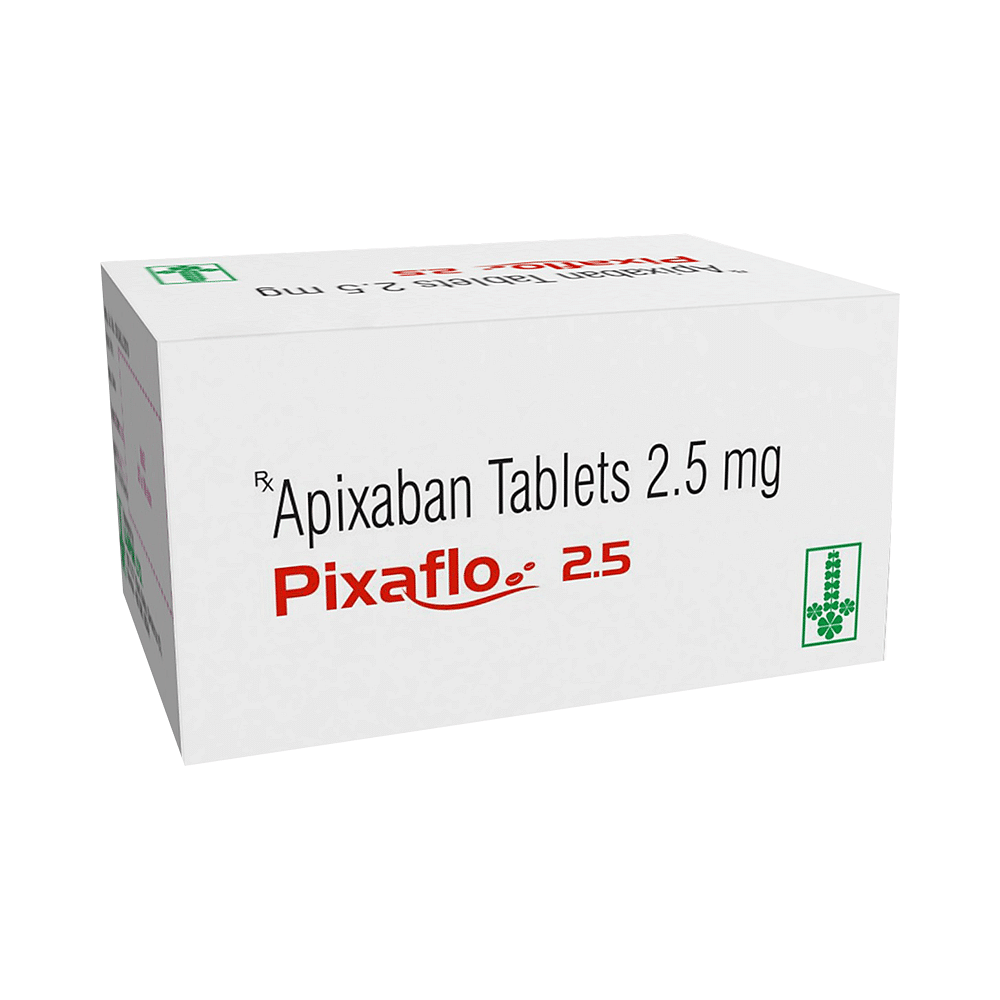
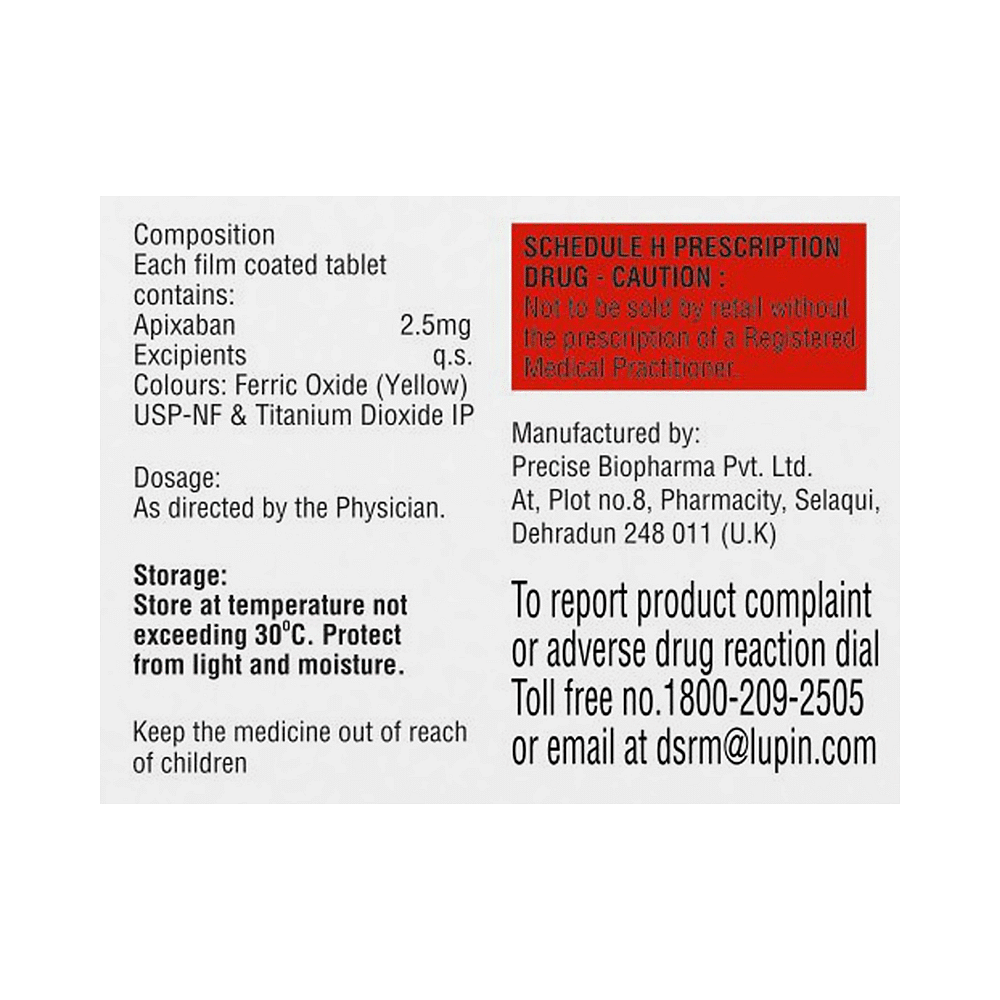
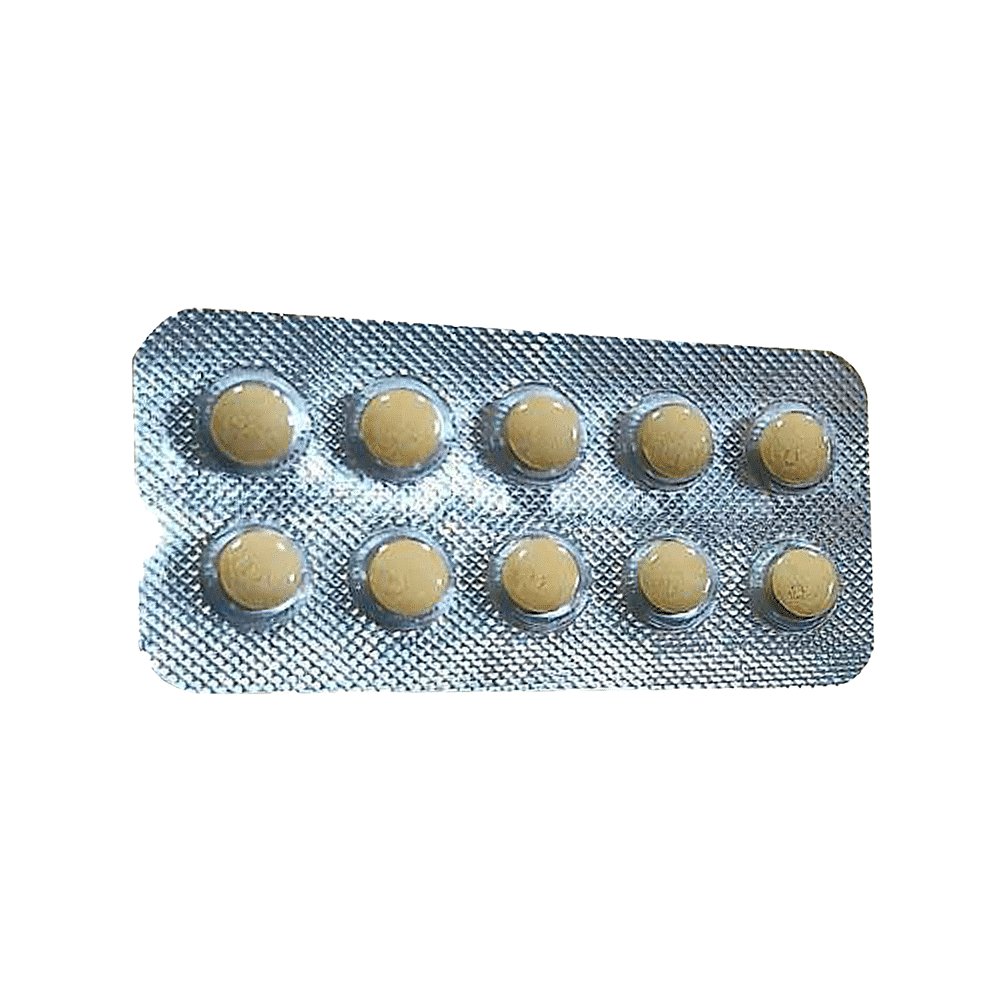
Pixaflo 2.5mg Tablet
Manufacturer
Lupin Ltd
Salt Composition
Apixaban (2.5mg)
Key Information
Short Description
Pixaflo 2.5mg Tablet is an anticoagulant used to prevent and treat blood clots, reducing the risk of stroke and heart attack.
Dosage Form
Tablet
Introduction
Pixaflo 2.5mg Tablet is a blood thinner that helps prevent and treat blood clots in the veins of your legs, lungs, brain, and heart. It is commonly used to reduce the risk of stroke and heart attack. While it is effective in preventing clot formation, it also increases the risk of bleeding. Therefore, it is important to use this medication under the guidance of a healthcare professional and to be cautious while engaging in activities that may cause bleeding. Consult your doctor for personalized advice and to understand the potential risks and benefits.
Directions for Use
Take this medicine in the dose and duration as advised by your doctor. Swallow it as a whole. Do not chew, crush, or break it. Pixaflo 2.5mg Tablet may be taken with or without food, but it is better to take it at a fixed time.
How it works
Pixaflo 2.5mg Tablet is a novel oral anticoagulant (NOAC). It works by preventing the formation of blood clots in the body.
Quick Tips
Pixaflo 2.5mg Tablet can be taken with or without food. Night time administration is not preferable. It interacts less with food or other medicines, hence frequent dose changes are not required. It increases your risk of bleeding. Be careful while shaving, cutting fingernails or toenails, using sharp objects, or engaging in contact sports. Inform your doctor if you see blood in your vomit, urine, or stool (black, tarry stools or bright red blood). If you are going to have surgery or dental treatment, you may be asked to stop taking Pixaflo 2.5mg Tablet temporarily. Notify your doctor if you have any kidney problem. Do not stop taking medication without talking to your doctor.
Related Medicines
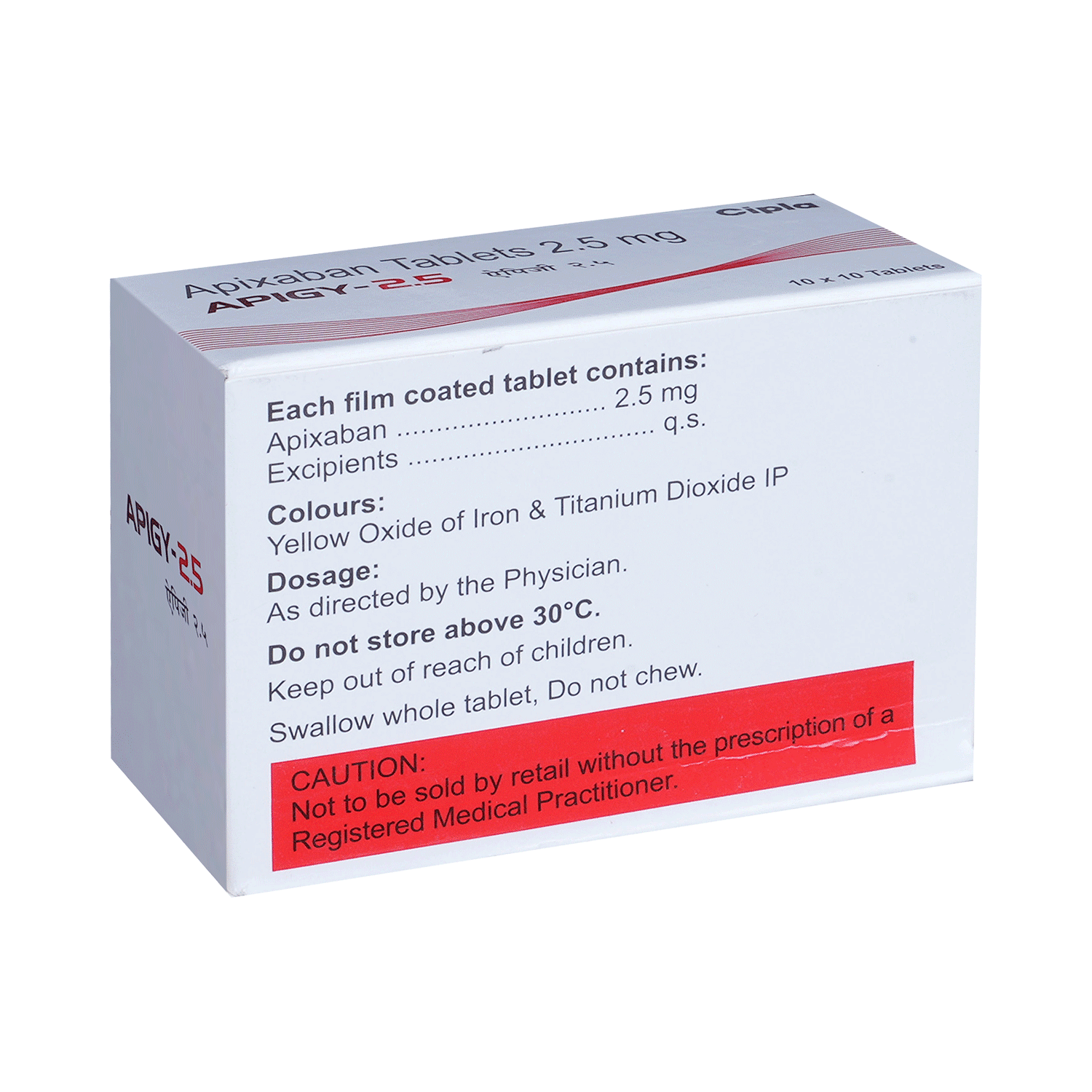
Apigy 2.5 Tablet
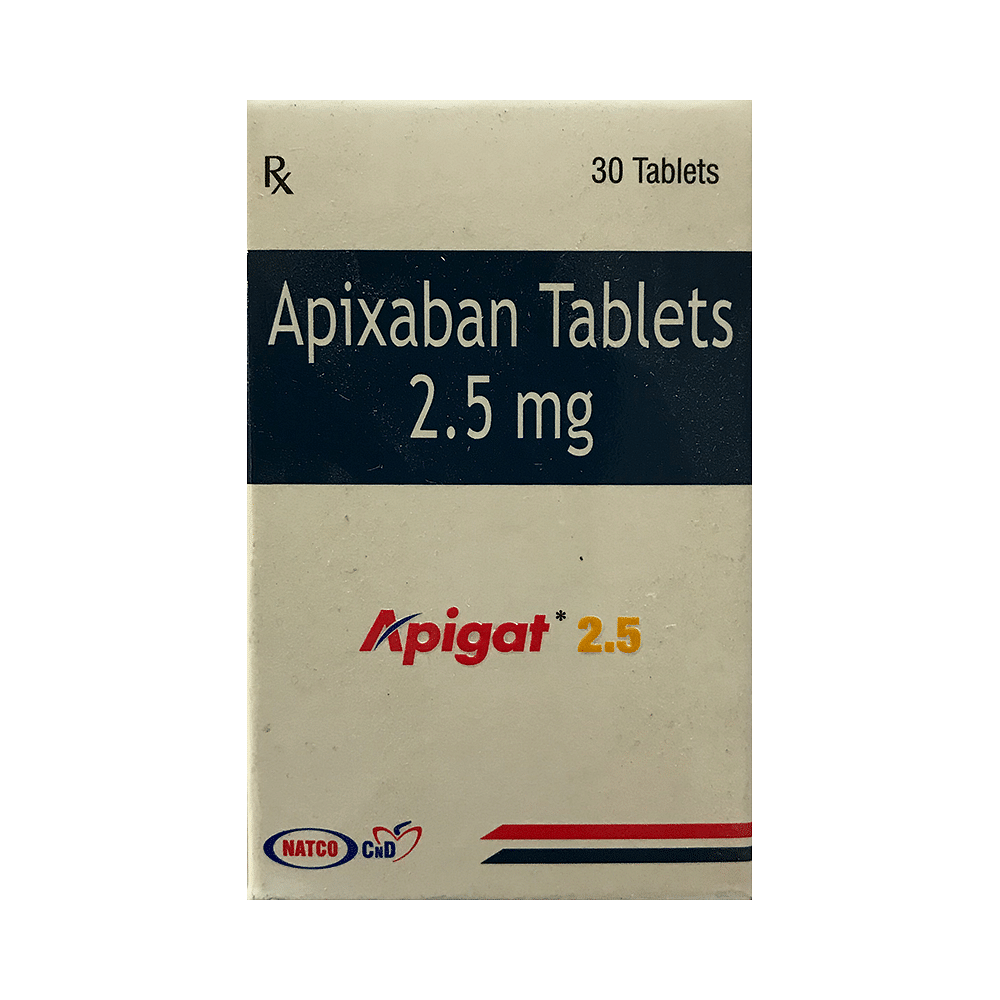
Apigat 2.5 Tablet
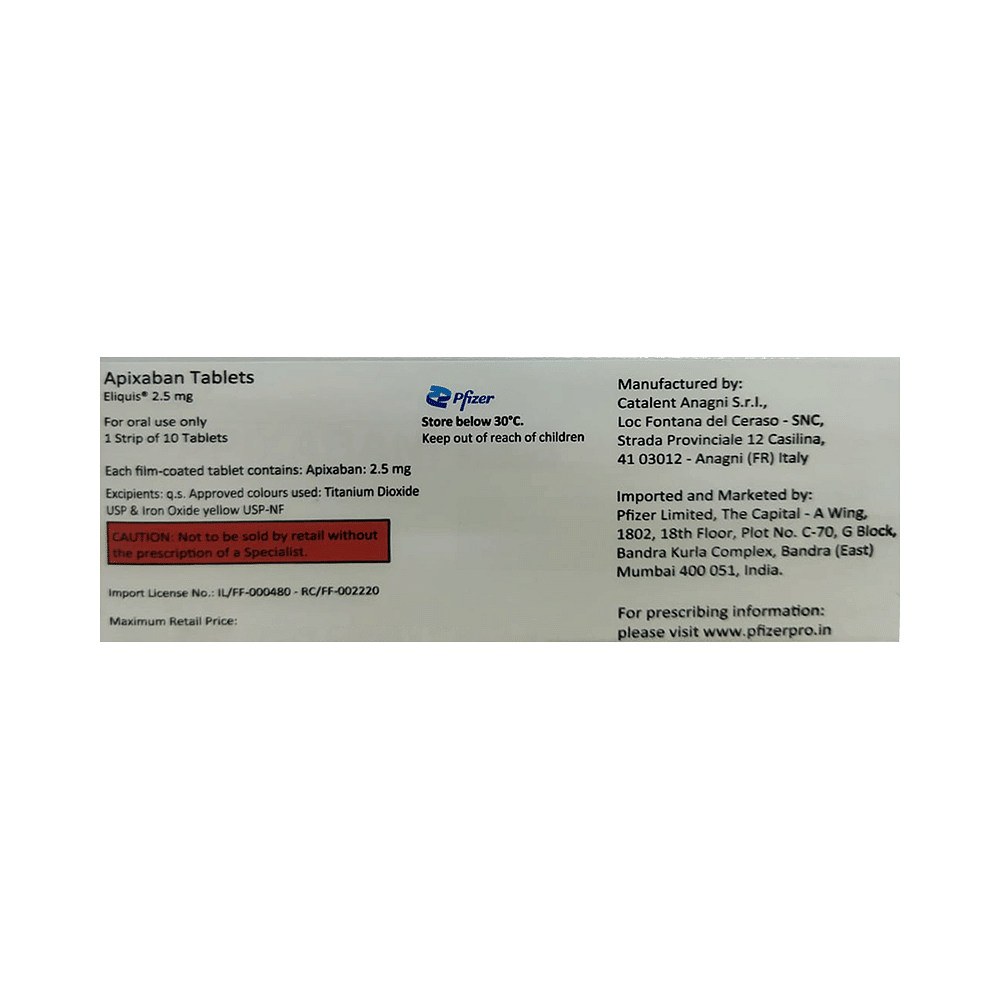
Eliquis 2.5mg Tablet
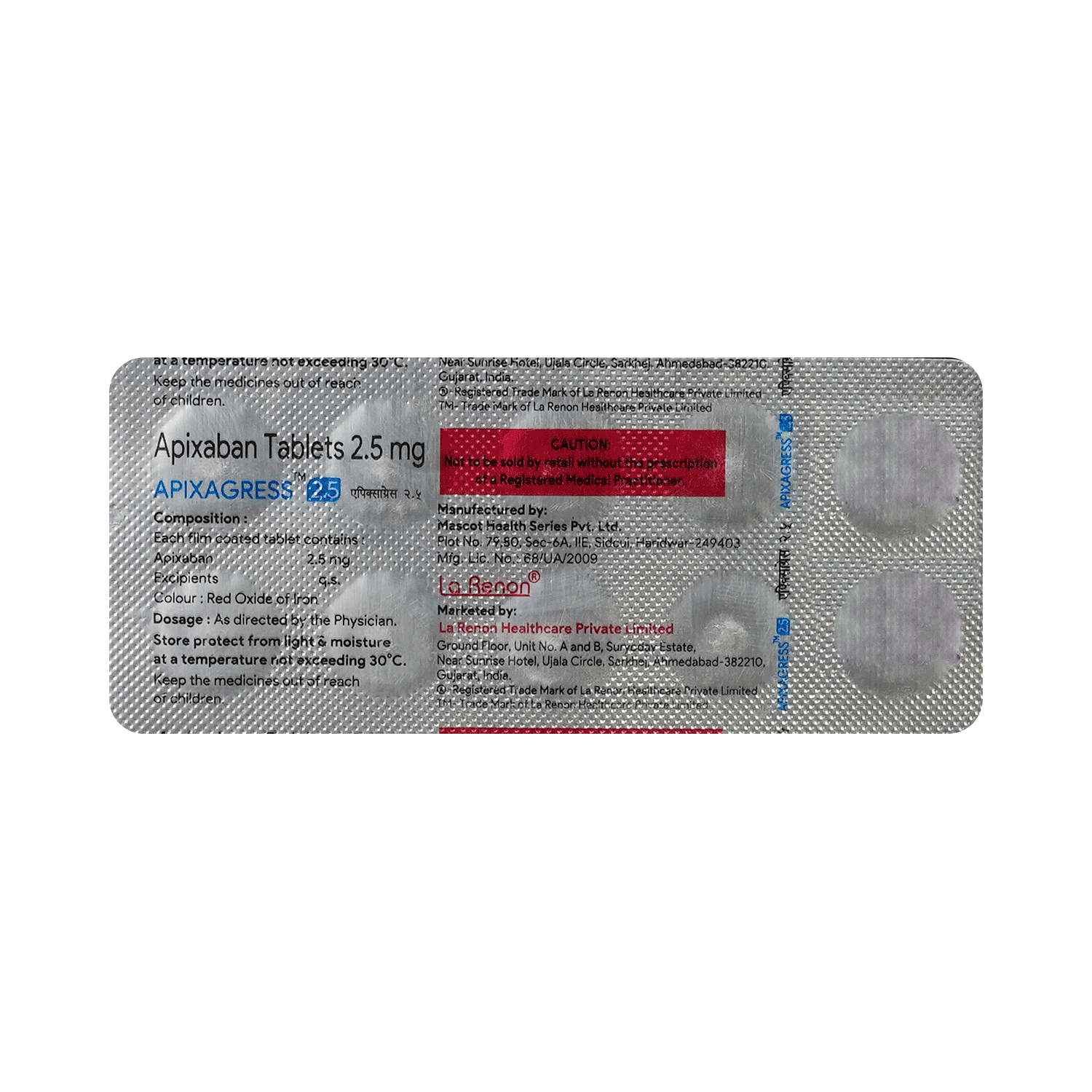
Apixagress 2.5mg Tablet

Abaxis 2.5mg Tablet

Abaxis 2.5mg Tablet

Faxapix 2.5mg Tablet
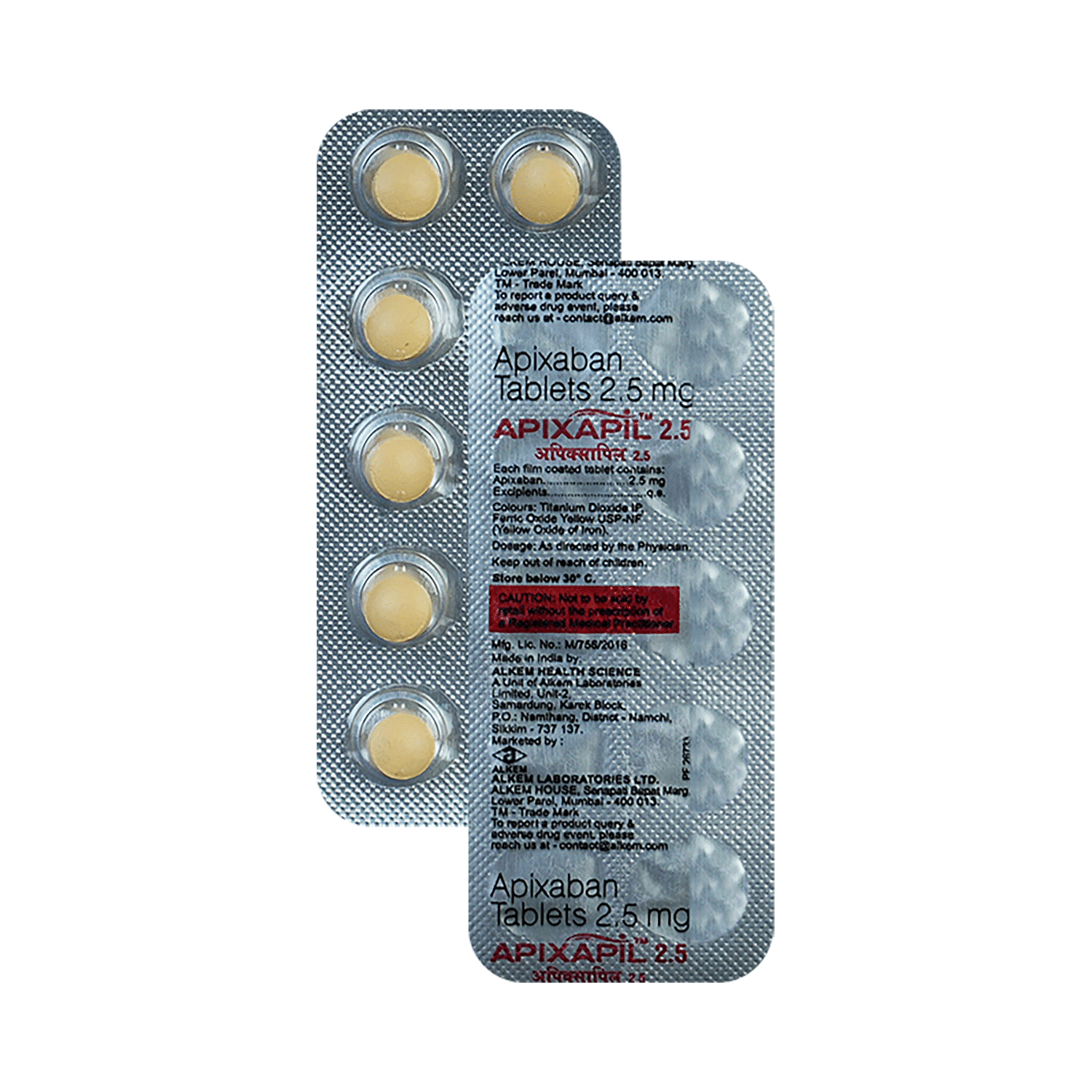
Apixapil 2.5mg Tablet

Apixator 2.5 Tablet

Del Quis 2.5mg Tablet
Frequently asked questions
Can I cut the tablet of Pixaflo 2.5mg Tablet?
If you have difficulty swallowing the whole tablet, it may be crushed and mixed with water for easier ingestion, or with a diluent such as 5% dextrose in water, apple juice, or apple puree. Ensure to crush the medication just before administration.
What if I miss a dose of Pixaflo 2.5mg Tablet?
If a dose is missed, it should be taken immediately with subsequent doses continuing as usual twice daily.
What are the side effects of taking Pixaflo 2.5mg Tablet?
Pixaflo 2.5mg Tablet may cause bleeding in the eyes, stomach, nose and other areas and anemia, which can lead to feelings of tiredness or paleness. It could also lower your blood pressure, potentially leading to fainting or a quickened heartbeat and nausea. Blood tests may show an increase in gamma glutamyltransferase (GGT), possibly due to liver problems.
What is Pixaflo 2.5mg Tablet used for?
Pixaflo 2.5mg Tablet is prescribed to reduce the risk of strokes and blood clots in individuals with atrial fibrillation. Atrial fibrillation involves irregular heartbeats, increasing the likelihood of clot formation within the body and potentially leading to strokes. It also helps decrease the risk of blood clots forming in the legs (deep vein thrombosis) or lungs (pulmonary embolism) after hip or knee replacement surgery and can help prevent future occurrences.
How dangerous is Pixaflo 2.5mg Tablet?
While taking Pixaflo 2.5mg Tablet, it's important to be aware of the associated risks, including increased bleeding risk due to its blood thinning properties. Do not stop the medication without consulting your doctor. If you experience epidural or spinal anesthesia while taking this medication, there is a heightened risk of developing blood clots in or around the spine which may lead to paralysis. It's essential to inform your doctor about any such procedures beforehand.
Do I need to stop Pixaflo 2.5mg Tablet before surgery?
Discuss with your doctor whether you need to stop the medication, as it depends on the specific procedure being conducted. For instance, if there's a moderate to high risk of bleeding during the surgery, you may need to discontinue Pixaflo 2.5mg Tablet 48 hours before.
Is Pixaflo 2.5mg Tablet a blood thinner?
Yes, Pixaflo 2.5mg Tablet belongs to the category of anticoagulants or blood thinners. It prevents your blood from clotting by inhibiting the formation of an essential factor involved in blood clotting (factor Xa).
What are the symptoms of overdosage of Pixaflo 2.5mg Tablet?
Taking more than the recommended dose of Pixaflo 2.5mg Tablet may cause unusual bleeding, bruising, red, brown, or pink urine, and tarry stools (dark stools) along with coughing up blood or vomiting blood that looks like coffee grounds. Seek immediate medical attention in a nearby hospital or contact your doctor immediately.


